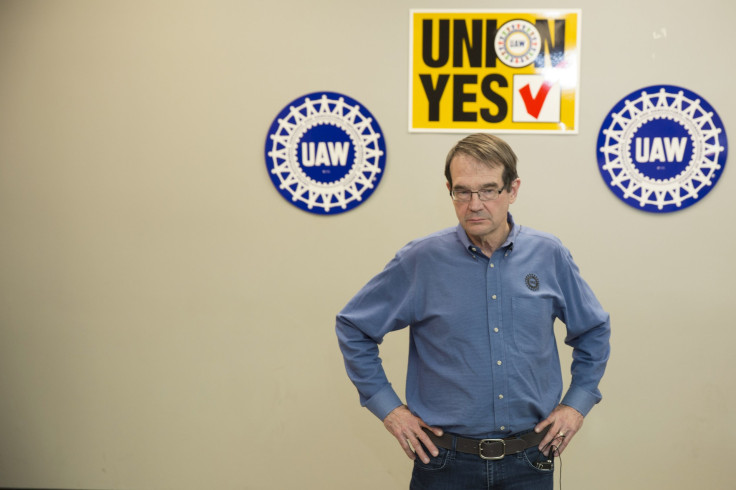UAW Creates New Local For Volkswagen Plant In Chattanooga, Tennessee

UPDATE 4 p.m EDT -- The UAW said at a press conference on Thursday afternoon in Chattanooga, Tennessee, that it has chartered the formation of UAW Local 42 for workers of Volkswagen's only U.S. plant. Union membership is voluntary and comes five months after the UAW lost a vote for traditional union representation. The plant manufactures the Passat sedan.
Original story begins here:
The United Auto Workers (UAW) will officially announce on Thursday afternoon a new strategy for representing workers at a Volkswagen AG (ETR:VOW) plant in Chattanooga, Tennessee - forming a local chapter that will be open to employees inside the facility who want to join.
The announcement comes five months after the union representing nearly 400,000 U.S. workers lost a vote to represent the plant’s roughly 1,500 blue-collar workers regardless of their support or opposition to the representation.
Meanwhile, Tennessee Gov. Bill Haslam and Sen. Bob Corker, R-Tenn., said this week they’re reviewing an old federal legislative proposal that would permit labor boards inside companies without union involvement. The support by the anti-union conservative state leaders is aimed squarely at cutting off UAW’s efforts to become the workers' representative in negotiating wages and benefits at the factory.
“We will be announcing a local, and we would fully expect that Volkswagen would deal with this local union if it represents a substantial portion of its employees,” UAW Secretary-Treasurer Gary Casteel told the Tennessean newspaper Thursday morning.
During a visit to Chattanooga earlier this week, Corker said he was reviewing federal legislation introduced in the mid-1990s to see if it could serve as a backbone to a new bill that would allow employees inside workplaces to establish internal labor boards where workers would be able to negotiate aspects of day-to-day operations, such as break times and vacations. Under current law, internal labor boards are illegal without union involvement.
If that law were struck down, Volkswagen employees at the Chattanooga plant could set up a works council without the involvement of the UAW.
The union opposes the measure, because it claims that these internal labor boards aren’t truly independent and workers would have no protection from retribution by employers and therefore would fear retaliation for demands the employer deems excessive.
“That's not what true democracy is about," Casteel told the Tennessee Times Free Press.
The conservative Heritage Foundation analyst Rachel Grezler disagrees.
"It is hard for workers to feel empowered or to have control over their jobs if they can only approach their employer with a union representative present and if their concerns can only be addressed through a collective bargaining process," she told a congressional committee last month.
Unlike in the U.S., German companies have union representation at the corporate board level that advises on wages and benefits while individual works councils negotiate terms at each facility. The Chattanooga plant is the only one Volkswagen has outside of China that lacks a works council. Volkswagen didn’t take a stand on the UAW vote, but indicated support for a works council that would put labor relations in Chattanooga in line with the company’s 92 other production plants outside of China.
In February, Corker claimed Volkswagen would give the plant the contract to produce a new SUV for the U.S. market if workers voted against the UAW. Volkswagen denied influencing the vote by promising more work, and Corker never clarified the discrepancy between Volkswagen’s apparent support for the vote and his comments that Volkswagen opposed it.
© Copyright IBTimes 2024. All rights reserved.












